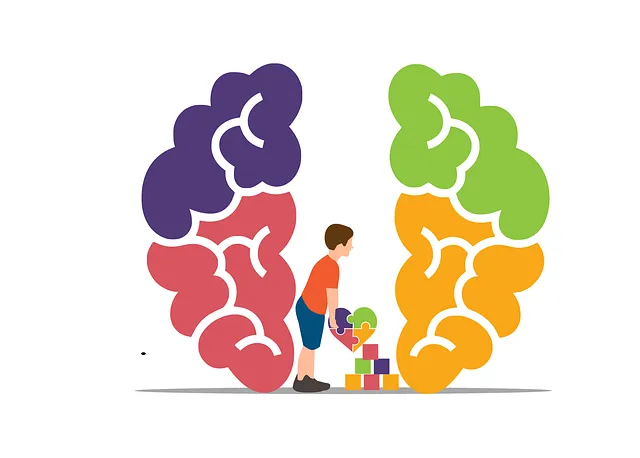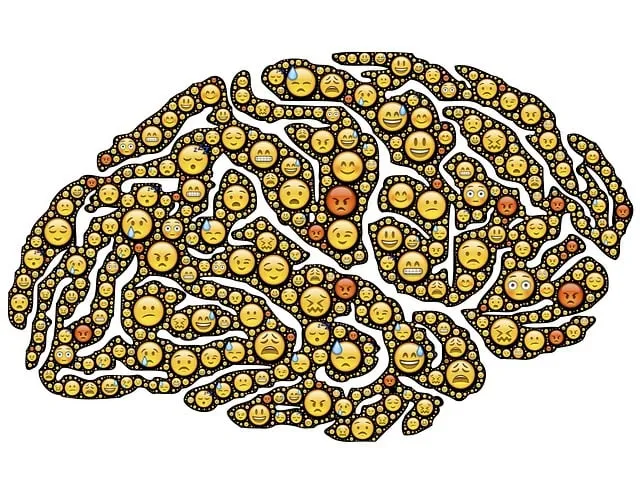Longmont Kaiser Permanente behavioral health services reviews highlight the significant impact of media representation on public perception of mental health, emphasizing that positive depictions foster empathy and support while negative portrayals perpetuate stigma. The current state of media portrayal requires improvement, with cultural sensitivity and accurate narratives crucial for shifting societal attitudes. Longmont Kaiser Permanente's innovative approach, evident in their reviews, tackles this issue through evidence-based practices, personal storytelling, and crisis intervention guidance, creating a safe space for patients to build inner strength. Their strategies break down barriers to seeking help and promote open conversations about mental health, revolutionizing societal perspectives and improving access to quality care. Community collaboration, facilitated by these reviews, fosters understanding and empathy, ultimately shaping more inclusive healthcare environments and encouraging evidence-based practices in mental health treatment.
Mental illness representation in media significantly shapes public understanding and perceptions, impacting mental health support-seeking behaviors. This article explores strategies to challenge negative stereotypes and promote empathy. We review current media portrayals of mental illness, highlighting issues and opportunities for improvement. A case study focusing on Longmont Kaiser Permanente behavioral health services demonstrates successful initiatives enhancing accurate representation. Additionally, we discuss the power of community collaboration through reviews and advocacy in driving positive change, fostering a more empathetic society.
- Understanding the Impact of Media Representation on Mental Health Perception
- The Current State: A Review of Mental Illness Portrayal in Popular Media
- Longmont Kaiser Permanente Behavioral Health Services: A Case Study
- Strategies to Enhance Accurate and Empathetic Media Portrayal of Mental Illness
- Community Collaboration: Empowering Positive Change through Reviews and Advocacy
Understanding the Impact of Media Representation on Mental Health Perception

Media representation plays a significant role in shaping public perception about mental health. The way mental illnesses are depicted in movies, television shows, and news coverage can influence how society understands and treats individuals living with these conditions. Studies have shown that negative or inaccurate media portrayals can lead to stigma, discrimination, and even discourage people from seeking help. On the other hand, positive representations can foster empathy, reduce prejudice, and encourage support for those facing mental health challenges.
For instance, a review of Longmont Kaiser Permanente behavioral health services highlights successful initiatives aimed at improving mental health care. By showcasing recovery stories and promoting open discussions about various mental disorders, media can contribute to breaking down barriers and encouraging self-care routine development for better mental health. This is crucial in ensuring individuals feel understood and supported, ultimately leading to improved access to treatment and anxiety relief. Additionally, media can employ empathy-building strategies, such as personal narratives and diverse character representations, to help audiences understand the human experience behind mental illness.
The Current State: A Review of Mental Illness Portrayal in Popular Media

The current state of mental illness representation in popular media is a topic that has garnered significant attention due to its profound impact on public perception and understanding. Longmont Kaiser Permanente behavioral health services reviews consistently highlight the need for more accurate and nuanced portrayals. Unfortunately, stereotypes and misrepresentations are still prevalent, often leading to stigmatization and a lack of empathy from the general public.
Cultural sensitivity in mental healthcare practice is crucial, as media has a powerful influence on shaping societal attitudes. By incorporating effective empathy building strategies, narratives can move beyond simplistic cliches. Promoting mental health awareness through authentic representations encourages open conversations, fosters understanding, and ultimately benefits individuals seeking support for their behavioral health needs.
Longmont Kaiser Permanente Behavioral Health Services: A Case Study

Longmont Kaiser Permanente Behavioral Health Services stands as a beacon of hope and healing for many in need of mental health support. This case study highlights their innovative approach to addressing a pressing issue: the representation and portrayal of mental illness in media, which often perpetuates harmful stereotypes. By focusing on evidence-based practices, the center offers a safe space for individuals to cultivate inner strength and develop confidence boosting strategies tailored to their unique journeys.
Through dedicated services, Longmont Kaiser Permanente empowers patients to embrace and prioritize their mental wellness. Their comprehensive programs aim to break down barriers associated with seeking help, ensuring that everyone has access to quality care. By fostering an environment of understanding and empathy, the center challenges societal norms surrounding mental illness, promoting a more nuanced perspective that encourages open conversations about mental health in various media platforms. Reviews consistently praise their patient-centered approach, emphasizing improved outcomes and enhanced well-being for those who have been part of this transformative journey.
Strategies to Enhance Accurate and Empathetic Media Portrayal of Mental Illness

To enhance accurate and empathetic media portrayal of mental illness, various strategies can be implemented. Longmont Kaiser Permanente behavioral health services reviews highlight the importance of diverse representation, ensuring characters with mental health struggles are not unidimensional but reflect the complexity and range of experiences. Mental wellness journaling exercise guidance can empower individuals to share their personal stories authentically, providing insights into their journeys and fostering understanding among audiences.
Crisis intervention guidance should be integrated into media narratives, offering practical support and resources for viewers facing similar challenges. By incorporating these strategies, media platforms can contribute to breaking down stigma associated with mental illness and promoting resilience building within affected communities. This balanced approach ensures that discussions about mental health are both informative and compassionate, reflecting the reality of those seeking behavioral health services.
Community Collaboration: Empowering Positive Change through Reviews and Advocacy

In the fight against stigmatization, community collaboration is a powerful tool. Longmont Kaiser Permanente behavioral health services reviews serve as a prime example of how collective efforts can drive positive change in mental health representation. By encouraging honest and open discussions about mental illness through these reviews, individuals with direct experiences share their stories, fostering understanding and empathy among the public. This collaborative approach not only enhances Mental Health Awareness but also promotes the adoption of effective Stress Reduction Methods.
The impact extends beyond individual narratives; it inspires advocacy. When community members actively engage in conversations about behavioral health services, they contribute to shaping more inclusive and supportive environments. This collective action encourages healthcare providers like Longmont Kaiser Permanente to prioritize evidence-based practices, ensuring that available resources are aligned with the evolving needs of those seeking Stress Management support. Such collaborative efforts ultimately revolutionize how mental illness is portrayed, making a significant contribution to societal progress in managing and reducing stress-related conditions.
Media representation plays a pivotal role in shaping public understanding of mental illness, with accurate and empathetic portrayals offering a powerful tool for promoting mental health awareness. As illustrated by the case study of Longmont Kaiser Permanente Behavioral Health Services, positive changes can be driven through collaborative efforts involving diverse community stakeholders. By advocating for more nuanced and realistic media depictions, we can foster an environment that reduces stigma and encourages support for individuals facing mental health challenges. Continuous dialogue and strategic initiatives, such as those outlined in this article, are essential to ensuring media continues to serve as a catalyst for meaningful progress in mental health representation.






